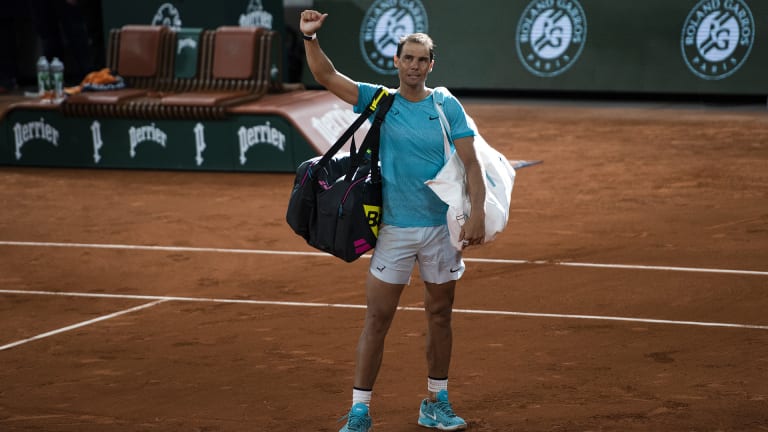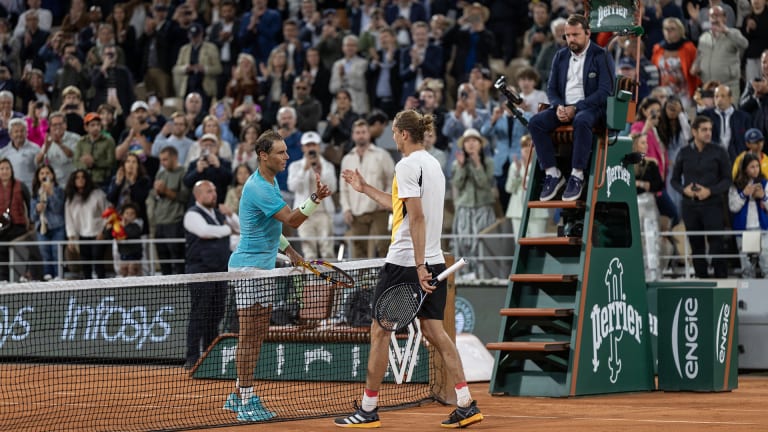Down two sets and a break in the third, Rafael Nadal hit a forehand winner, raised his fist, and looked high into the upper decks in Court Philippe Chatrier. The game’s greatest competitor was rallying himself, and the fans at Roland Garros who have learned to love him over the last 20 years, for an 11th-hour attempt at staving off defeat.
Suddenly, the impossible seemed possible again. Nadal followed with a winning smash on the next point to make it 15-30. His opponent, Alexander Zverev, who had been nearly flawless for two hours, double faulted to make it 15-40. Rafa had two break points. The crowd was alive. His coaches, pensive for much of the afternoon, were chattering encouragement. He had his old, long purposeful stride back.
Read more: Alcaraz, Djokovic, Swiatek and more watch Rafael Nadal vs. Alexander Zverev in Paris
On the first break point, he got a good look at a backhand, and… sailed it long. On the second break point, Zverev put a backhand on the outside of the sideline for a winner. Nadal threw his hands up in disbelief—another centimeter and he might have had the break. Instead, his last chance had vanished as quickly as it had arrived.
Those two points—Nadal’s overhit backhand and Zverev’s perfect one—made for a pretty good summary of Zverev’s 6-3, 7-6 (5), 6-3 win on Monday. Nadal put himself in winning positions, challenged his opponent, and brought back memories of spectacular moments from the past, but he was rusty when it mattered, and he couldn’t find the shot he needed to swing the match in his direction. Sometimes he was a little slow, other times he was little overzealous. Zverev, meanwhile, 11 years younger and the champion in Rome last week, was confident and precise whenever he needed to be.

